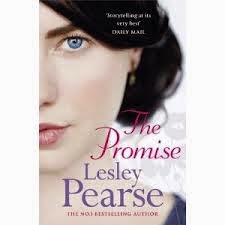 I have been nominated for the One Lovely Blog Award by Samantha Bacchus. I have been following Samantha's blog since I started writing my own. She was my very first follower and is always very encouraging and supportive. You may also follow her on Twitter @Sammylou37 and her Samantha Bacchus Author page on Facebook.
I have been nominated for the One Lovely Blog Award by Samantha Bacchus. I have been following Samantha's blog since I started writing my own. She was my very first follower and is always very encouraging and supportive. You may also follow her on Twitter @Sammylou37 and her Samantha Bacchus Author page on Facebook.CLICK HERE
Basically I have to give 7 facts about myself.
THE RULES
- Link back to the blog of the person who nominated you.
- Share 7 facts about yourself.
- Nominate 15 blogs that you particularly like, or fewer if you can’t think of 15.
- If I’ve nominated your blog, please don’t feel obliged to take part if you don’t want to, but if you do, that's great! Thanks.

When I was a little girl, my dad used to take me with him to watch motorbike scrambling at Hawkstone Park in Shropshire. Even now, I can still smell the fumes of the bikes' engines.
I collect thimbles and now have well over two hundred of them. Each one is a memento of a place visited or holds a memory of someone who has bought it for me. I have learned the word for 'thimble' in a number of languages!
I am an official Eddie Stobart Club member and have my own spotter's handbook where I record all the trucks I see on our roads and motorways. It could take another two years but a truck named 'Janet Eleanor', after yours truly, is on its way!
I love picture books where the illustrations send a powerful message. I used many such books when I was a 'Philosophy for Children' trainer. One of my favourites was 'The Arrival' by Shaun Tan.

I am a big fan of Welsh rugby. Even though it's usually only on the Big Screen, I enjoy watching the national team play especially in the Six Nations' tournaments. Cardiff on international day comes alive!
So there you have it. Seven more random facts about me.
I have nominated just a few bloggers this time because it's only a few months ago since I did a similar thing for another award. Here are some other interesting blogs that I follow, having found them more recently, and recommend that you pop across and have a look:
Judith Barrow - http://www.judithbarrow.co.uk/category/blog/
Kath Eastman - http://nutpress.co.uk/blog/
Juliet Greenwood - http://julietgreenwoodauthor.wordpress.com/
Lynne Hackles - http://lynnehackles.blogspot.co.uk/
Evonne Wareham - http://evonneonwednesday.blogspot.co.uk/
Thank you for reading! You may follow me on Twitter @JanBayLit and on my Jan Baynham Writer Facebook page.





















